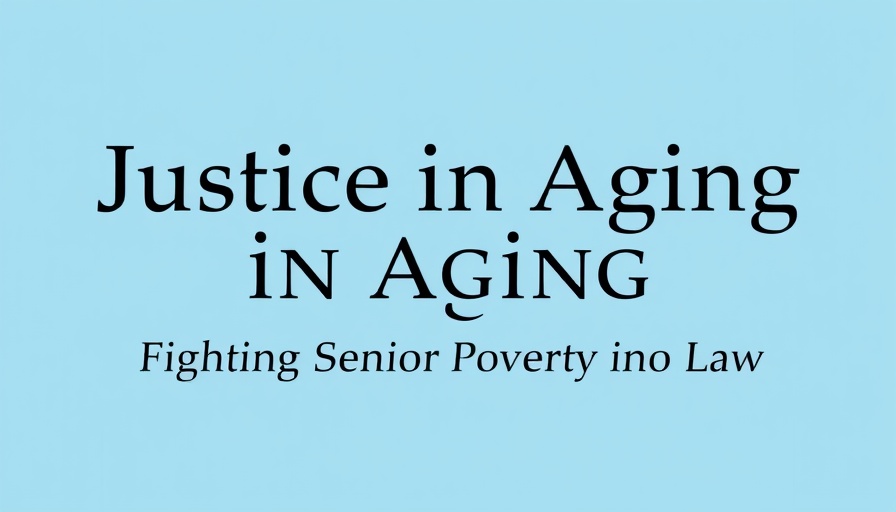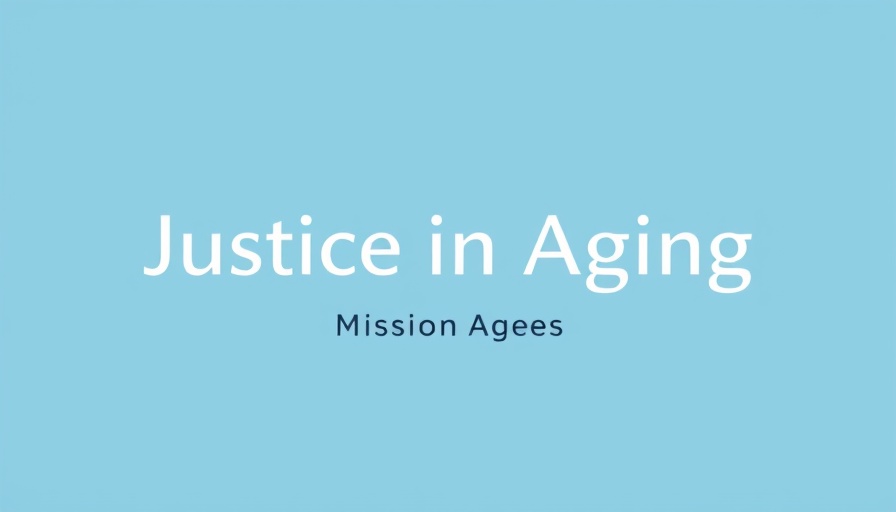
Understanding the Unique Challenges Faced by LGBTQ+ Older Adults
In the United States, an estimated 2.7 million individuals aged 50 and older identify as part of the LGBTQ+ community, highlighting a demographic that is often overlooked in discussions about aging and health care. As these individuals navigate their later years, they are met with a set of challenges that uniquely affect their quality of life and well-being. For instance, LGBTQ+ older adults are more likely to face economic insecurities than their non-LGBTQ+ counterparts, with nearly one-third living at or below 200% of the federal poverty level. This financial strain is compounded by the emotional toll of historical and ongoing discrimination, which continues to impact their access to vital services.
The Legacy of Discrimination: A Barrier to Care
The recent policies enacted by previous administrations have created an environment of fear for many LGBTQ+ individuals, particularly for the elderly. The rescission of protective regulations surrounding healthcare and housing has left communities vulnerable, especially as these policies often roll back the rights gained over several decades. For example, the implications of a narrow interpretation of the Supreme Court’s decision in Bostock v. Clayton County could mean that protections against discrimination based on sexual orientation and gender identity may not be enforced in critical areas such as housing and healthcare. This rollback could lead to increased instances of discrimination that LGBTQ+ older adults already experience.
Health Care Access and the Fight for Equity
Healthcare access is a prominent issue, with many LGBTQ+ older adults relying on Medicare and Medicaid for their health needs. The Affordable Care Act's Section 1557 provides essential protection against discrimination in these healthcare programs. However, the revocation of guidelines that support gender-affirming health care creates a dual threat—not only to individuals’ personal identities but also to their overall health. For elderly individuals who may need long-term care, such limitations on healthcare services exacerbate the potential for neglect and mistreatment.
The Interplay of Housing, Economic Security, and Elder Rights
Housing security is another critical area where LGBTQ+ older adults face discrimination. Policies affecting housing services can disproportionately impact individuals who may already lack familial support or community ties. Many LGBTQ+ seniors live alone and face heightened risks of isolation and homelessness. More alarmingly, federal crackdowns on housing discrimination can strip away crucial safeguards that protect these vulnerable elders, creating an urgent need for advocacy at all levels.
Future Implications: What’s at Stake?
The broader implications of these policies extend beyond immediate healthcare needs, posing existential threats to long-held rights such as marriage equality. Should controversial cases like Obergefell v. Hodges be reevaluated, the impacts on benefit eligibility for same-sex couples could hinder vital planning for long-term care and access to social security benefits.
Empowering LGBTQ+ Seniors: Advocacy and Support
In light of these challenges, robust advocacy is essential to ensure that LGBTQ+ older adults can navigate their later years with dignity and respect. Organizations dedicated to fighting for these rights are critical, providing resources that community members may not be aware of. It's imperative for families, caregivers, and younger community members to become allies in this fight, amplifying voices that have historically been marginalized and advocating for policies that ensure equitable access to healthcare, housing, and economic security.
Moving Forward: What Can Be Done?
As we raise awareness of the specific needs of LGBTQ+ older adults, it is crucial to engage in proactive measures to address the barriers they face. Multigenerational conversations can foster understanding and prompt action, while educational resources will empower LGBTQ+ seniors to assert their rights. As communities embrace inclusivity, they can create supportive environments that enable all individuals to thrive in their golden years. Advocating for policy changes, participating in community events, and providing support through local organizations are vital steps in moving towards equity.
Given the persistent threats to the rights and well-being of LGBTQ+ older adults, now is the time for action. Advocates can provide resources to those in need, and by lending your voice to this cause, you can help ensure that every individual receives the respect, care, and support they deserve in their age.
 Add Row
Add Row  Add
Add 




 Add Row
Add Row  Add
Add 

Write A Comment